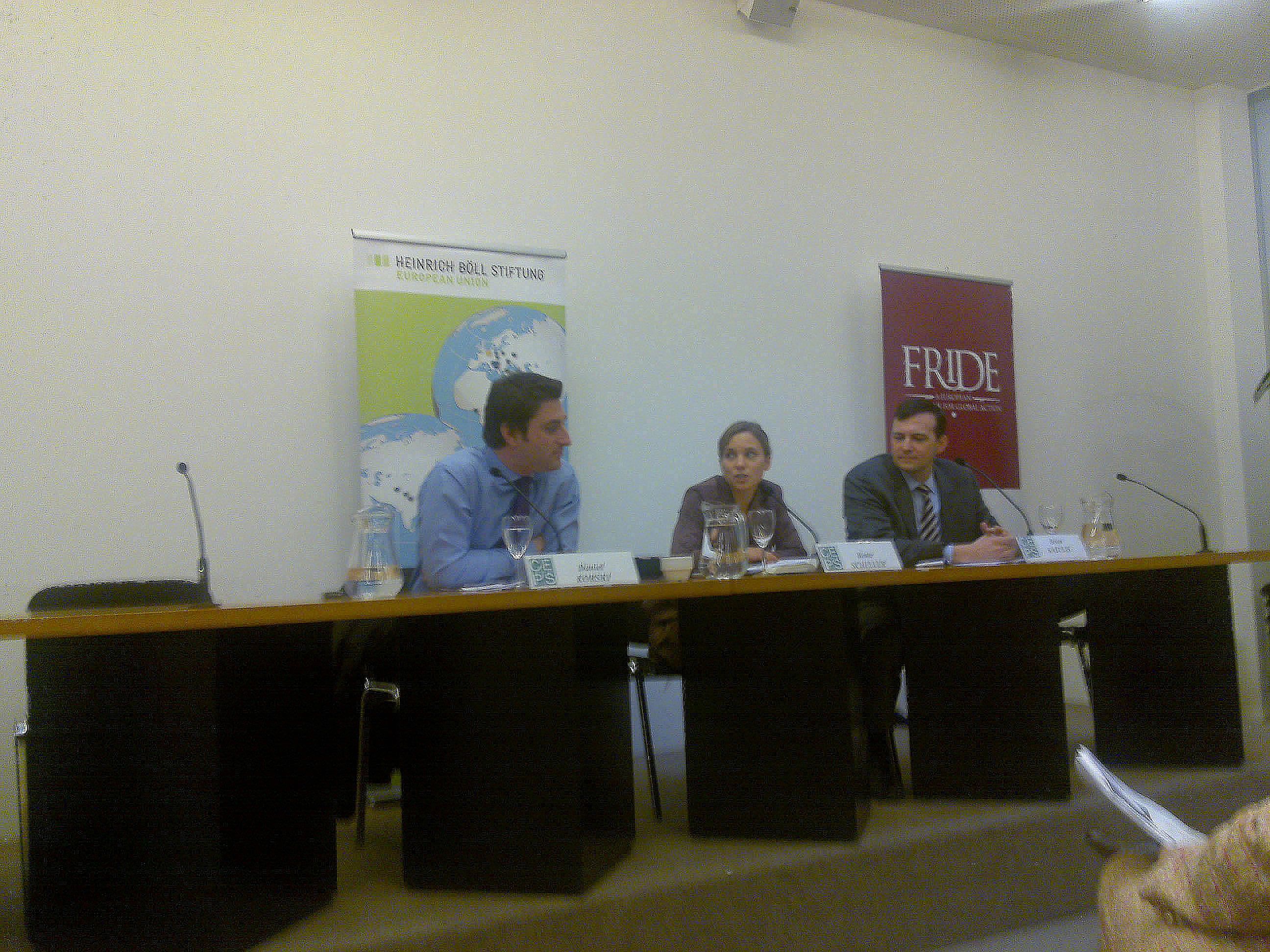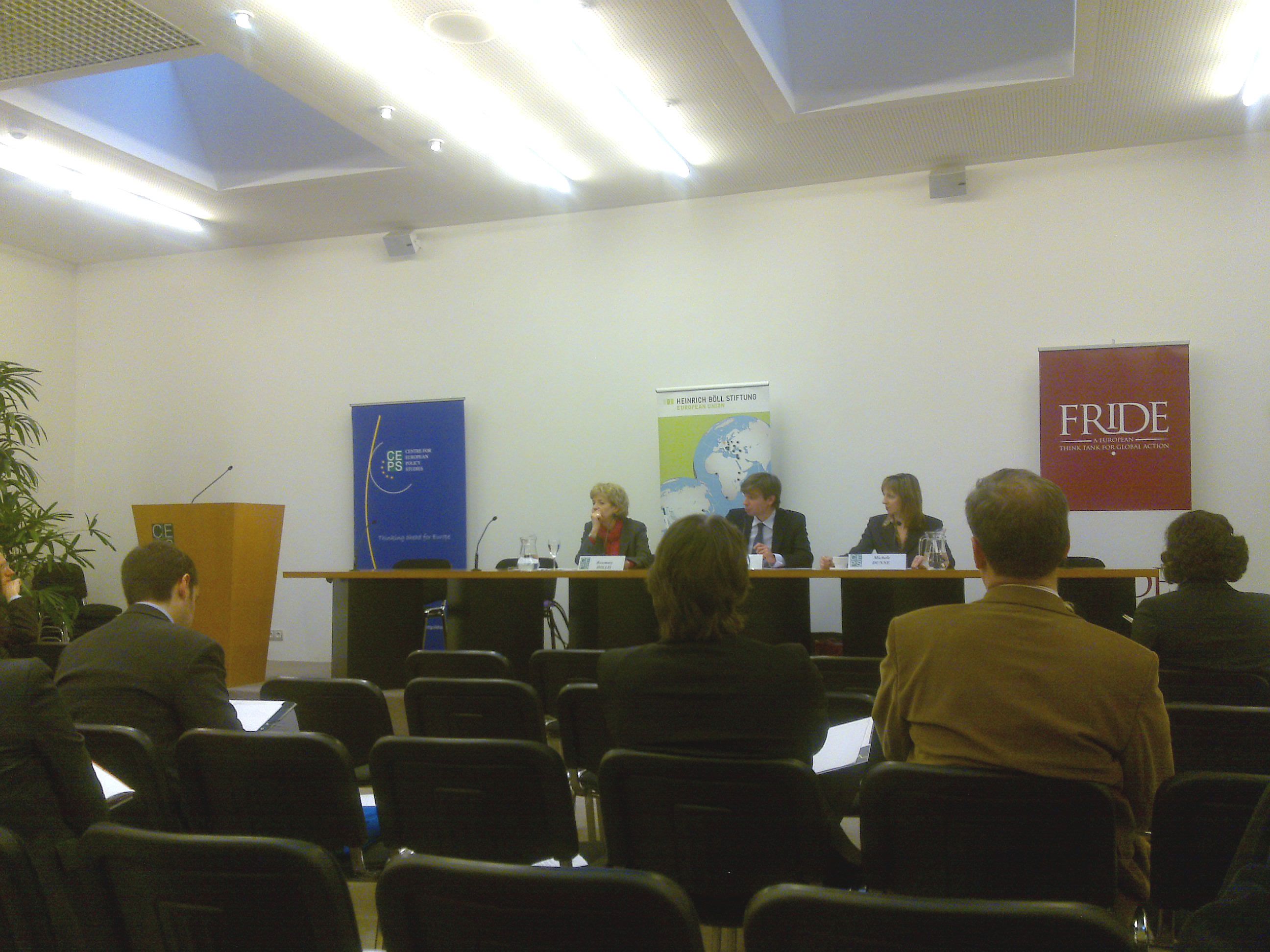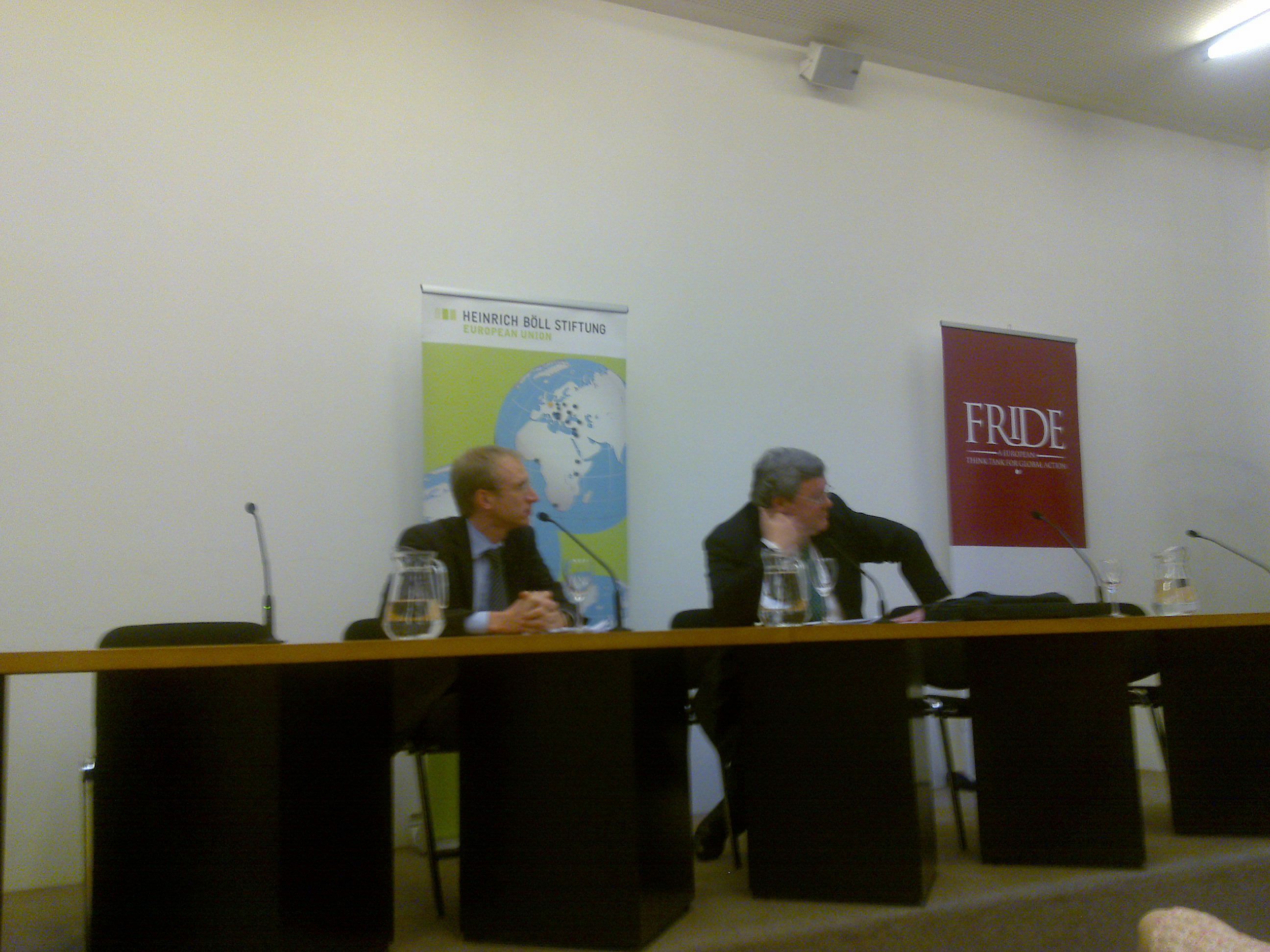
-
changing positions towards multilateralism, including in relation to the financial crisis
-
policies on climate change, especially in light of the December 2009 Copenhagen summit
-
security challenges in Pakistan and Afghanistan
-
Middle East policy
In each area the presentations and debates by academic experts and policy makers from Europe and the US explored a series of core topics on state of relation around the following questions:
-
have differences between the EU and US narrowed during 2009
-
is cooperation more effective
-
where do transatlantic differences remain, or indeed threaten to become morer rasther than less notable
-
what are the policy implications
The think tanks teamed up for a stock take of transatlantic relations after the first year of the Obama administration:
Global Governance and Multilateralism, Climate Change post Copenhagen, Keynote speaker Reinhard Buetikofer, Security I Afghanistan and Pakistan and Security II The Middle East

